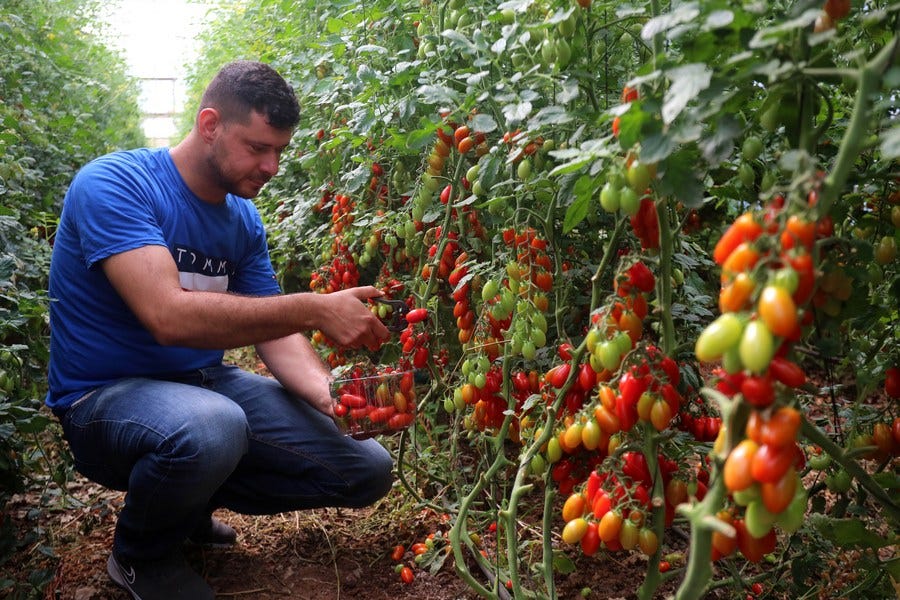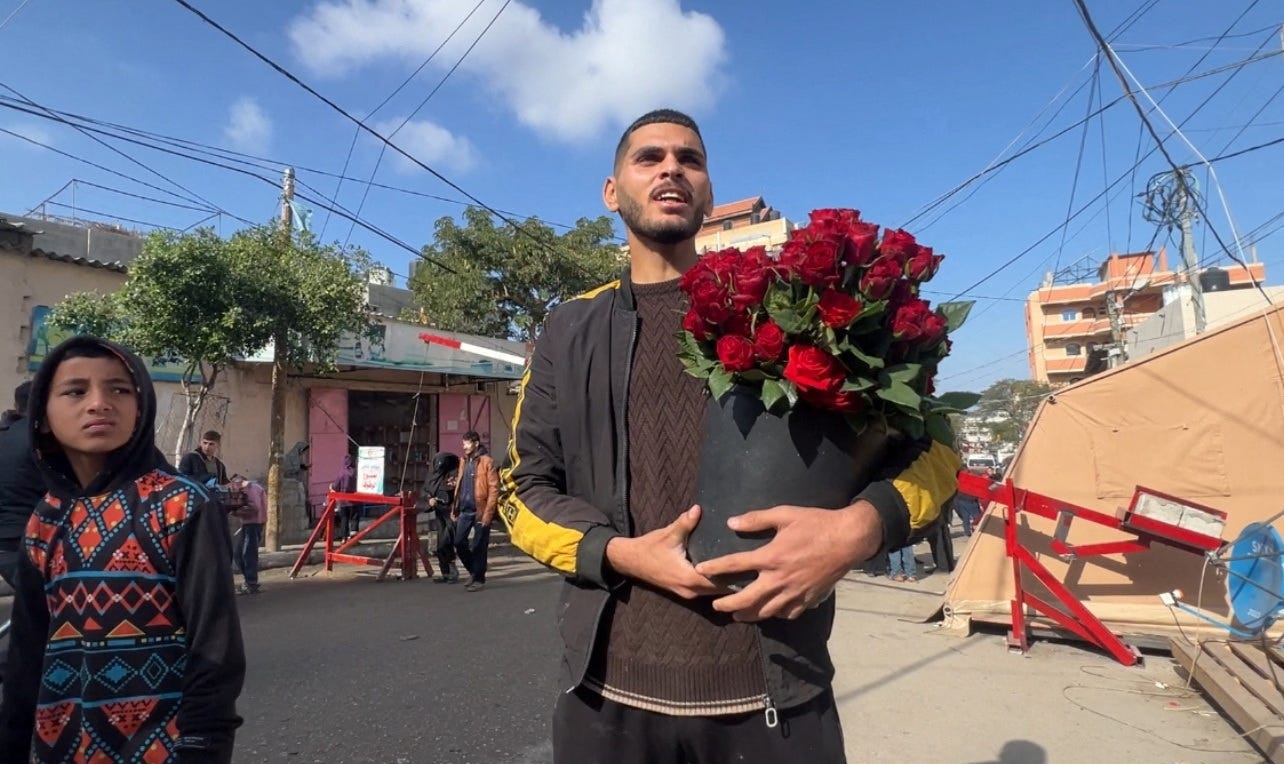Zibdiyit gambari, and the duty of remembering.
Adapted from: the cherished Gazan dish.
How to make zibdiyit gambari (“bowl of shrimp”):
Gather your ingredients: shrimp, tomatoes, onion, garlic, green chilis, dill, ground spices (coriander, cumin, allspice, cardamom), pepper, salt, pine nuts, sesame seeds, and parsley.
Briefly cook your shrimp over high heat until they blush. Drain the water they leave behind and set aside. Note their brininess. Recall Motaz’s photographs of Gazans finding respite in the sea, and the man in Rafah who had a clear message: his people love life.
Chop your chilis roughly and push a teaspoon of salt into them. Mince your garlic and dill. Rub them together using your fingers, then hold your hands up for a sniff. The nose has always been the organ through which you learned to love, through which you remember most vividly. Recall the time you read about the different herbs that grow in Palestine, piled into verdant hills at the farmers’ markets, and desperately wished you could inhale.
Start sauteeing your onions in olive oil. When they go translucent, add tomato paste, and caramelize the mixture for a minute. Stir in your tomatoes, spices, chilis, dill and garlic. Add a cup of water so that everything sits in a tomatoey broth. Let simmer for 10 minutes, giving the flavors time to coalesce.
Recall that tomatoes are an essential part of Palestine’s agricultural production; that in October, it was reported that 70% of the crops near Gaza could go unharvested because of the bombings. Later, Israel would promise to create a “secure logistics corridor” to transport produce and livestock from Gaza, but not its civilians.
You don’t need to remember these words, since they have been etched indelibly in your mind: “Observe who cares for the land versus who destroys it.”

Toast the pine nuts and sesame seeds in a pan as the tomatoes and spices simmer. Temporarily lament how expensive pine nuts have become, inflated along with everything else. Remember, with some heat rising to the cheeks, how the incarcerated man earned $17.74 for 136 hours of labor, then donated it all to relief efforts in Gaza. Remember, with some air inflating the heart, how generosity appears most abundant in those who have the least. Remind yourself to give, give, give.
When the nuts and seeds are done, set them aside for a second. Add shrimp back to pot, then layer in the toasted bits. Top with chopped parsley. Bake in oven for 10 minutes at 375 degrees with the lid on, then broil for 5, lid off. (Do not reprimand the writer for not telling you to preheat the oven—the real recipe is linked at the top.) Serve with bread or leftover rice, should you happen to have it.
Taste the dish: bouncy shrimp in a garlicky, aromatic bath, just enough heat to pique the tongue. It’s a flavour gamut perfectly emblematic of Gaza’s history as a port city and haven of spice. Remember, in stark contrast, the photos from yesterday: Emaciated children who’ve passed away from starvation. A bread-like lump made from animal feed. Blood on a bag of flour. And this essay, from poet Mosab Abu Toha:
…lately, hearing about unprecedented starvation in Gaza, I have felt a sort of hatred for the food in front of me. As I eat simple meals of chicken, rice, salad, and olives with my family, I think of the hunger in my homeland, and of all the people with whom I want to share my meals. I yearn to return to Gaza, sit at the kitchen table with my mother and father, and make tea for my sisters. I do not need to eat. I only want to look at them again.
Serve yourself a bowl, and eat it slowly. Remind yourself that to love food is to never take its abundance for granted.
Remember what the Palestinians have taught you about love—for the land, for their homes, for each other. Witness their love for life, as you would wish to be witnessed.





